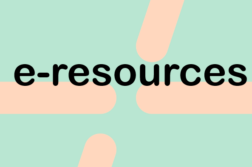The choice of search terms is crucial for the success of your information search. This article gives you five tips on a how to choose your search terms to get better results.
1 Use broad terms to search for books, in article search favour precise terminology
First you need to decide what type of sources you want: that determines both where to search and what kind of search terms to use. If you use HAMK Finna to search for books, use fairly broad concepts. In HAMK Finna, as in most reference databases, there is very little information about the books themselves: title, author and publication information with general keywords that describe the content.
To find articles, use more precise terminology. Even if the article is not available in full text form, there is often an abstract available. Also, field specific terminology is often used to describe them. For instance, if you are interested in windrow composting, you will find quite a few articles by using that very concept. To find books, you need to use the broad term composting.
It is also useful to consider the type of information you want: general, professional or scientific. Different text types use different terminology. For instance, rye is a general term and will help you find all sorts of information on rye, its cultivation and use. Professional articles might prefer to use spring or autumn rye, while science uses the latin secale or secale cereale.
2 Find one good source and see how it has been described in the database
Sometimes one has neither the time nor inclination to analyze one’s topic. Perhaps it is unfamiliar to you and you are unsure of what it is that you need to find. Do not worry: just type in one or two words and see what you can find. From the results list, choose one that seems interesting and take a closer look: what is the title? How has it been described in the database? Is there a table of contents? All this information may provide you with valuable tips on how to proceed.

3 See database suggestions for related items
Most databases help you find matching results, e.g. See also in HAMK Finna, Related items in ProQuest and Recommended articles in Science Direct. But please note: database suggestions have been automatically generated, and thus their ability to meet your actual need may vary.
4 Use database index
Databases provide their own indexes, that is lists of the keywords and subject terms actually used in the database. Indexes are a particularly useful tool in journal databases, such as Cinahl and Ebsco Academic.

5 Use dictionaries and thesauri
For the best and most comprehensive results, use synonyms and broader and narrower terms. You do not have to come up with them all by yourself: field specific dictionaries and thesauri will help you find suitable search terms.
For more information on choosing and using your search terms, see library homepage for Help in information searching.


